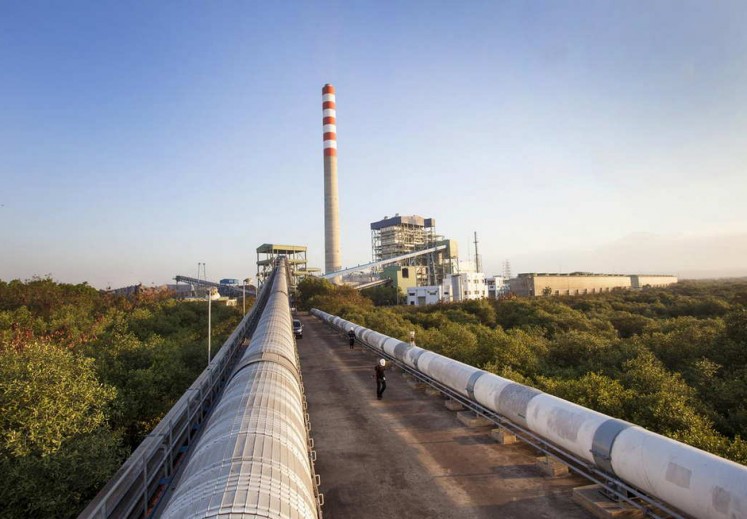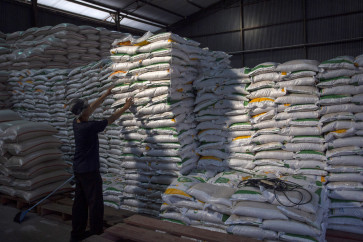Popular Reads
Top Results
Can't find what you're looking for?
View all search resultsPopular Reads
Top Results
Can't find what you're looking for?
View all search resultsBapanas blames production costs for high rice prices
A temporary HET exemption is among the measures Bapanas has deployed to keep rice supplies and prices stable amid high production costs and a shortage of the staple food due to dry weather.
Change text size
Gift Premium Articles
to Anyone
T
he head of the National Food Agency (Bapanas) has blamed the high costs of production for driving up the prices of rice and other grain.
"The high price of grain and rice in the community is caused by high production costs, which include [...] land leases, wages, fertilizer, etc.," Bapanas head Arief Prasetyo said on Monday in a statement, as quoted by news agency Antara.
According to Arief, the government is trying to keep grain prices stables at all levels of the supply chain, from farmers and merchants to consumers, through the retail price cap (HET).
“As stated by the President [Joko ‘Jokowi’ Widodo], the high HET for rice has been adjusted to the production costs, so the government can guarantee balance and reasonable prices [at] all levels,” he said.
Read also: As El Nino bites, Indonesians struggle with record-high rice prices
Bapanas says it is striving to keep farm gate prices for rice high enough by allowing State Logistics Agency (Bulog) flexibility in setting the government purchase price (HPP) for unhusked rice (GKP) at up to Rp 6,000 per kilogram.
"We need to be able to understand and continue to support farmers so that they are able to continue production," Arief stated.



















